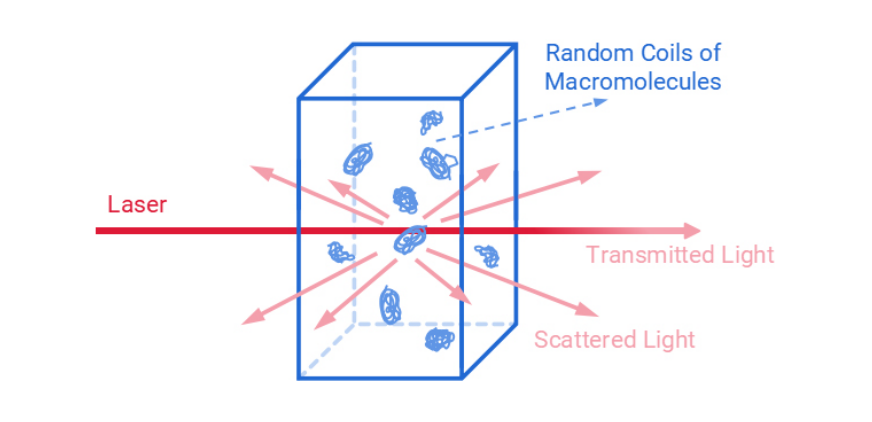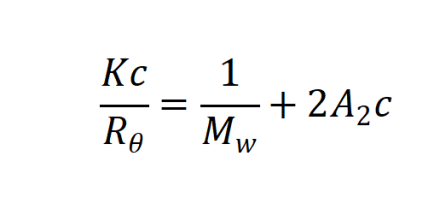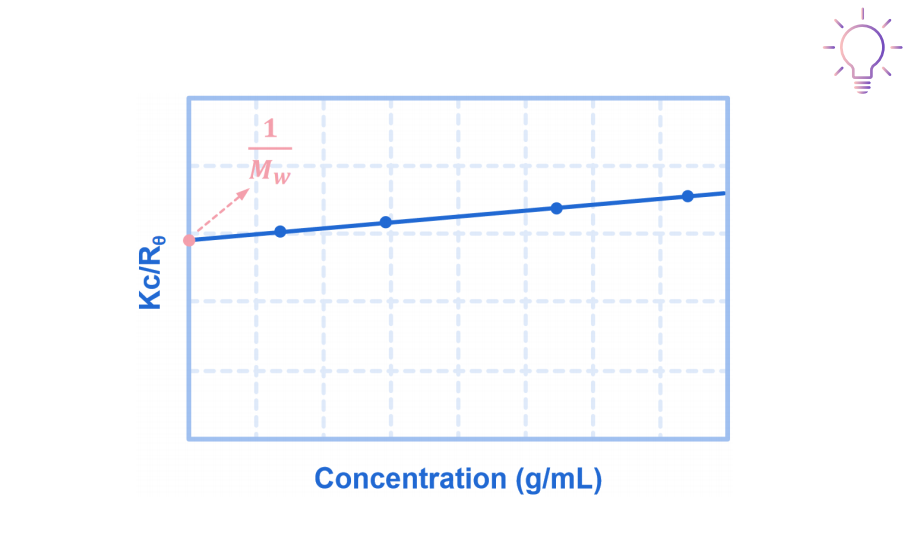What is static light scattering (SLS)?
2023-05-30WIKI
Static light scattering (SLS) is a technique that measures the average scattering intensities to calculate the weight-average molecular weight of particles in a liquid solution. When a laser beam irradiates macromolecules in solution, the macromolecules scatter light in all directions.

The relationship between the scattering intensity and the molecular weight of a macromolecule is described by the simplified Rayleigh equation:

The instrument collects scattering intensities of macromolecules in solutions at different sample concentrations. The Debye plot is then constructed by plotting and linearly fitting the Kc/Rθ values versus the concentrations. The slope of the linear fit is used to calculate the second virial coefficient A2. And the Y-axis intercept of the linear fitting yields the reciprocal of molecular weight.





